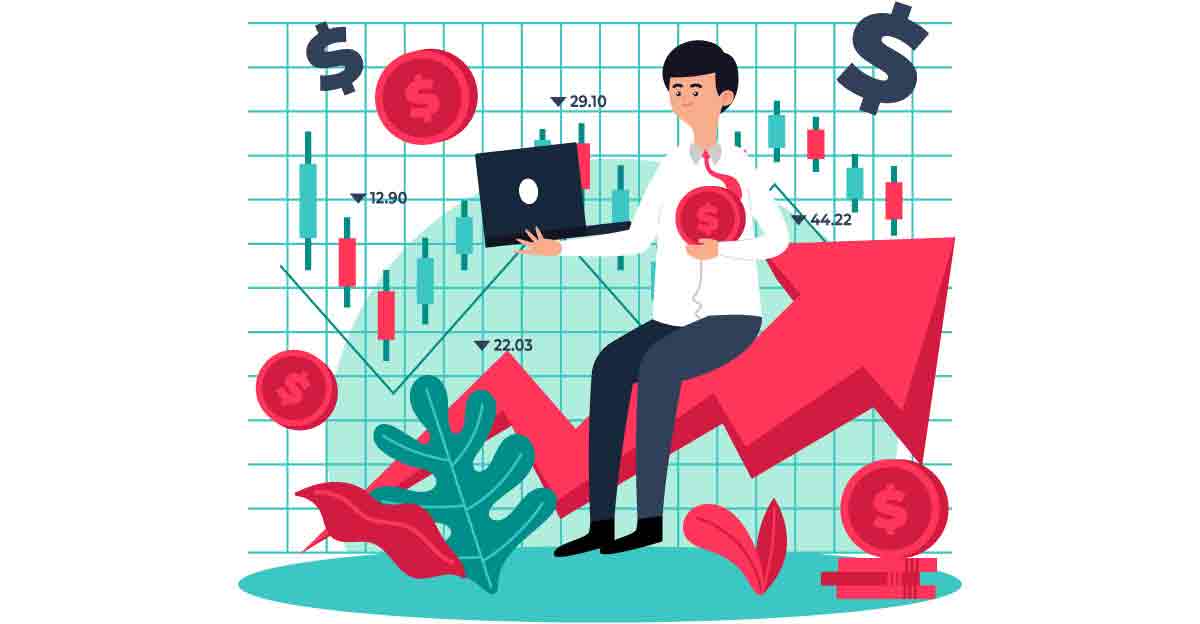How does interest rate affect investment? Interest fees can have a sizeable impact on funding and the stock market. There is a frequent relationship between interest rates and stock prices, where rising pastime costs can lead to a decline in the inventory market. The Federal Reserve's hobby price decisions are intently watched with the aid of buyers and can be viewed on a Fed pastime price vs inventory market chart.
When the Federal Reserve raises interest rates, it can make it more costly for organizations to borrow money and invest, which can lead to slower financial increases and decreased in stock prices. As an investor, it is essential to maintain a shut eye on the Federal Reserve's selections and economic warning signs to remain informed about the doable impact of pastime rates on the inventory market.
The Fed interest rate vs stock market chart is complicated and multifaceted. Interest quotes are an essential component of the economy, influencing the whole lot from investment decisions to purchaser behavior. In this blog post, we will take a closer seem at the impact of pastime prices on the stock market, and what you want to be aware of as an investor.
How Does Interest Rate Affect Investment?
Interest costs play a large role in shaping funding decisions. The degree of hobby costs can influence the price of borrowing and the return on investments. When activity fees are low, borrowing is cheaper, which can inspire groups and men and women to take out loans to fund investments. At the same time, low-interest quotes can make fixed-income investments much less attractive, as the returns are lower.
Conversely, when interest rates are high, borrowing turns into more expensive, which can discourage investment. However, high-interest prices can make fixed-income investments greater appealing, as the returns are higher.
Interest fees can additionally have an impact on the inventory market in different ways. For example, changes in interest rates can affect the cost of currencies, which can influence worldwide trade and investment. Additionally, the level of pastime costs can impact inflation and financial growth, which can affect company profits and inventory prices.
Relationship Between Interest Rates and Stock Prices
The relationship between hobby rates and stock expenses is complex and can be influenced using a range of factors. Generally speaking, when activity charges are low, stock prices tend to rise. This is because low-interest rates make borrowing cheaper, which can inspire businesses to make investments in growth opportunities. Additionally, low-interest prices can make fixed-income investments less attractive, which can encourage investors to turn to the inventory market in search of higher returns.
However, this relationship is now not continually straightforward. For example, if activity fees are low due to the fact the economy is weak, this can also not be a high-quality signal for the inventory market. Similarly, if hobby fees are low because of inflation concerns, this might also lead to higher inflation, which can subsequently damage corporate profits and inventory prices.
Conversely, when interest prices are high, stock fees tend to fall. This is due to the fact high-interest quotes can make borrowing greater expensive, which can discourage companies from investing in growth opportunities. Additionally, high-interest rates can make fixed-income investments extra attractive, which can lead traders to shift their cash out of the stock market and into fixed-income securities.
It's essential to be aware that the relationship between pastime charges and stock costs is no longer constantly linear. Many different factors can affect stock prices, such as company-specific news, geopolitical events, and changes in patron behavior.
Fed Interest Rate vs. Stock Market Chart

One way to visualize the relationship between interest prices and the stock market is to seem to be at a chart of the Federal Reserve's goal pastime fee and the S& P 500 index. The Federal Reserve sets the target pastime fee as a way to control the economy and maintain inflation in check. When the economy is weak, the Federal Reserve may decrease hobby quotes to stimulate growth. When the economy is strong, the Federal Reserve may also increase hobby fees to stop inflation from getting out of control.
What You Need to Know as an Investor
As an investor, there are numerous things you need to preserve in mind when it comes to the impact of activity charges on the inventory market:
● Interest costs are just one of many elements that can have an impact on the inventory market. It's essential to consider different factors, such as company-specific news, geopolitical events, and modifications in consumer behavior.
● Interest charges can affect special sectors of the inventory market in distinctive ways. For example, rising activity costs may be advantageous for financial stocks, as they can lead to greater income from lending. Conversely, rising activity rates may be bad for patron discretionary stocks, as they can lead to decrease customer spending.
● The impact of hobby prices on the stock market is no longer constantly immediate. It can also take time for changes in hobby rates to filter thru the economic system and have an effect on corporate earnings and inventory prices.
● Interest quotes are now not the only factor that can affect the financial system and the inventory market. Other factors, such as government policies, international monetary conditions, and technological advancements, can additionally play a tremendous role.
● As an investor, it's essential to have a diverse portfolio that can face up to fluctuations in the economic system and the inventory market. This skill invests in a combination of stocks, bonds, and other asset lessons that can assist stability threat, and return.
● When interest fees are rising, it can be extra challenging for organizations to borrow money and make investments. This can lead to slower economic growth, which can finally influence stock prices. On the other hand, when activity rates are falling, it can be less difficult for companies to borrow money and make investments, which can stimulate monetary increases and raise inventory prices.
● The bond market can be an appropriate indicator of where activity rates are headed. When interest rates are anticipated to rise, bond prices tend to fall. As a result, investors might also consider transferring some of their investments from bonds to stocks.
● Rising hobby charges can affect the real estate market in various ways. Higher mortgage rates can make it greater highly-priced for humans to purchase homes, which can lead to a slowdown in the housing market. Additionally, rising pastime charges can lead to higher borrowing prices for real property companies, which can have an impact on their profitability.
● Global monetary conditions can influence activity charges and the stock market. For example, if there is a recession in a most important trading partner, this can influence the U.S. economic system and the stock market. Additionally, changes in change rates can impact the profitability of companies that do enterprise internationally.
● Inflation can impact the economic system and the inventory market in quite a few ways. When inflation is high, the Federal Reserve can also elevate interest costs to fight inflation. This can lead to a slowdown in economic growth and a decline in the inventory market. Additionally, inflation can erode the fee of investments over time, which can have an impact on long-term investment returns.
Additionally, it's essential to preserve a close eye on the Federal Reserve's monetary coverage decisions and financial indicators. The Federal Reserve's selections on hobby charges can have a great impact on the financial system and the stock market. Investors must pay attention to the Federal Reserve's target hobby rate, as well as its commentary on economic prerequisites and inflation.
Investors ought to additionally reflect on consideration of the manageable effect of inflation on the stock market. Inflation can erode the value of investments over time, as the fee of items and offerings rises. When inflation is high, the Federal Reserve can also increase activity fees to fight inflation, which can lead to a decline in the stock market.
Finally, investors have to be aware of the possible effect of international elements on the inventory market. Changes in global monetary conditions, political instability, and different factors can have a sizable effect on the inventory market. Investors ought to think about diversifying their portfolios with exposure to international markets to help balance risk and return.
The effect of hobby prices on the inventory market is complicated and multifaceted. While there is a widely widespread inverse relationship between activity rates and the inventory market, there are many different elements that can affect inventory prices. As an investor, it is important to hold a long-term perspective, a focal point on diversification, and remain informed about the Federal Reserve's monetary coverage choices and financial indicators. By doing so, investors can construct a portfolio that is resilient to fluctuations in the financial system and the inventory market.
Conclusion:
In conclusion, the relationship between activity quotes and the inventory market is complicated and multifaceted. While there is a standard inverse relationship between pastime quotes and the inventory market, there are many other elements that can have an impact on inventory prices. As an investor, it's important to hold a long-term point of view and focus on building a different portfolio that can weather fluctuations in the financial system and the inventory market. .






